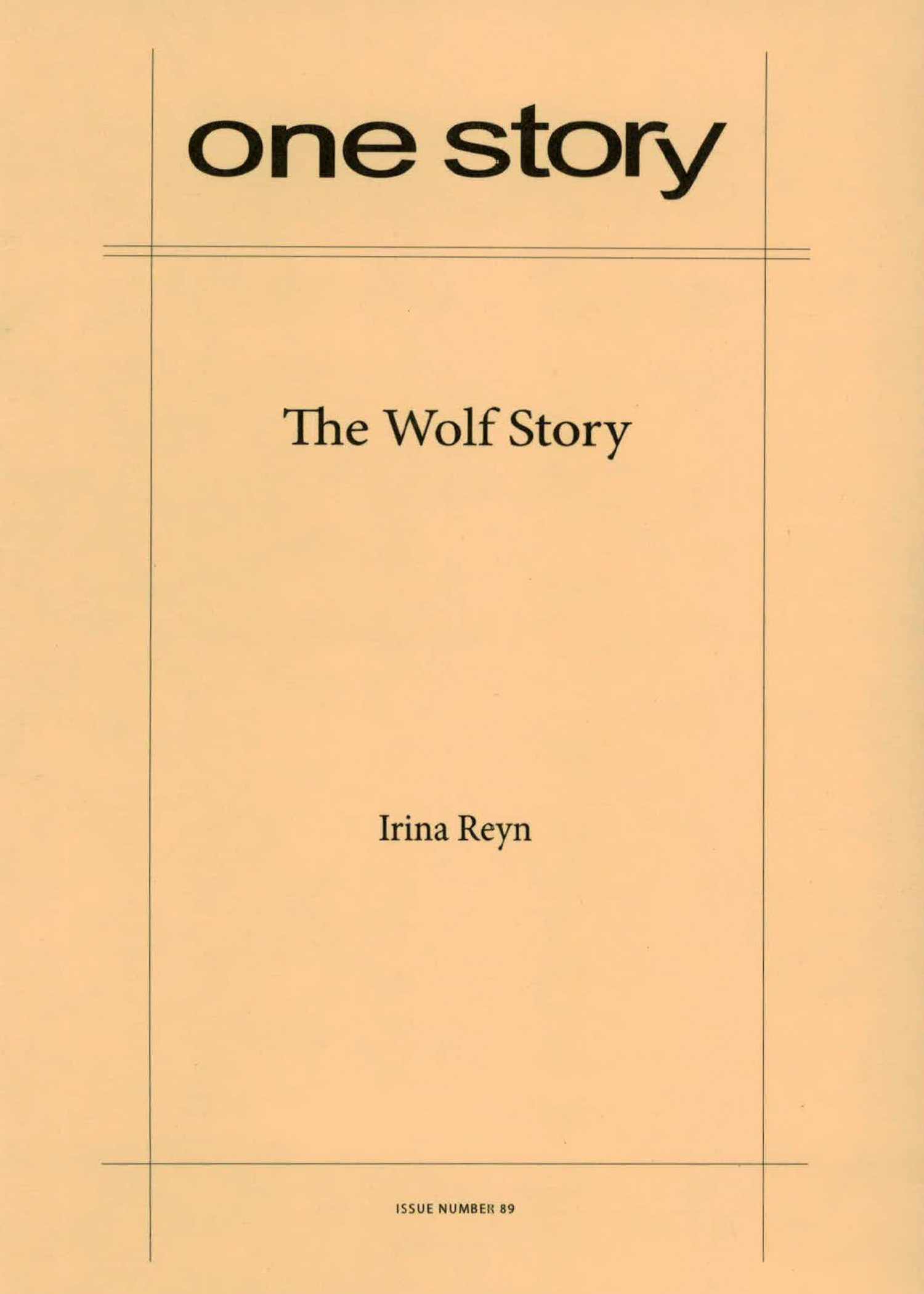
The Wolf Story
$2.50
Sold out
Excerpt
When I first stepped into Frederick Chopin Airport, I was afraid Lauren wouldn’t be there to meet me. The terminal was smaller than I imagined it would be, just a long corridor of faded carpet, with one small newspaper stand. I tried to decipher the airport signs, standing there with my wrinkled coat slung over an arm, realizing that I had expected to encounter Cyrillic letters. Around me, families were embracing; I heard the plastic crinkling of flower bouquets, the loud smack of kisses. But then I saw her. Frail and compact, fistfuls of hair behind each ear, she lunged for me in her rickety, coltish way, and I tried to secure a grip across the lattice of her bony shoulders.
“Welcome to Warsaw,” she said, surprised, it seemed, that I was here.
I followed her to the baggage carousel. There, the passengers of my small connecting flight from Munich were gathered, watching the mechanical mouth spitting out one lumpy bag after another. Lauren darted for mine, grasping its torso around the middle. Two men mobilized to her rescue; the suitcase probably weighed more than she did.
Irina Reyn
Irina Reyn is the author of the novel What Happened to Anna K. (Touchstone/Simon & Schuster, August 2008) and the editor of the anthology Living on the Edge of the World: New Jersey Writers Take on the Garden State. Her work has appeared in Tin House, Post Road, Nextbook, Town & Country Travel, and other publications. She is currently teaching fiction writing at the University of Pittsburgh.
Q&A by Hannah Tinti
- HT: Where did the idea for this story come from?
- IR: The journey in this story is based on a real trip I made to Warsaw in the late 1990s. Like Galya, I went there to visit a college girlfriend who was doing research for a book on post-World War II Polish Jewry (she’s actually back there again now, finishing her project). I undertook the trip at a time when I felt I had exhausted my aimless, frivolous early twenties and wasn’t yet certain what the next stage of my life would look like. I deeply admired my girlfriend, who was courageously digging into her family’s past while I was still reluctant to explore my own. It is out of that particular, ambivalent moment of comparison that this story was born.
- HT: What was the most challenging aspect of writing this story?
- IR: As with so many of my stories, it was hard to find the arc, the direction of the narrative. I felt strongly about the story’s inner core, about the subject matter, but draft after draft, the structure kept eluding me. What is this story about? I kept asking myself. It was only when I stepped back a bit, during the editing process, that I was able to see my way around it more clearly.
- HT: Is ‘the wolf story’ an actual fairy tale? Do you know anything about its origins?
- IR: Yes, there is an actual fairy tale called “The Wolf,” that can be found in the wonderful collection of Russian folk tales compiled by the Slavic equivalent of the Brothers Grimm, a nineteen-century lawyer named Aleksandr Afanas’ev. When I was pursuing a graduate degree in Russian literature, I taught a class on fairy tales and fell in love with the material. “The Wolf Story” is one in a series of stories I’ve been working on that intertwine Russian fairy tales into the lives of present-day immigrants.
- HT: Galya seems torn between her current life and living up to her family’s history. Do you think there is any way to live in the present, but also honor the past?
- IR: I think what it means to honor the past varies from person to person. I’m not sure there was a way for Galya to do so, at least not at the place she’s in during the span of the story. To honor the past, one needs to be a seeker, willing to go to difficult places in search of answers, and before she gets to Poland, Galya does the opposite; she suppresses the questions themselves.
- HT: How long did it take you to complete this story?
- IR: I started it exactly a year ago, and then kept obsessively returning to it every month. I so wanted to get it right.
- HT: What is the best bit of advice about writing you have ever received?
- IR: One of my writing teachers once compared me to a new doctor afraid of inflicting pain on her patients. She told me, “You must inflict pain: on your characters, your readers, and yourself.” I always return to this piece of advice whenever I’m tempted to censor myself before the words even land on the page.
- HT: What are you working on now?
- IR: I am putting the final touches on my fairy tale story collection, Russian Hauntings. Otherwise, I have both a new novel and a nonfiction project in the works; when one stalls, I take solace in the other.